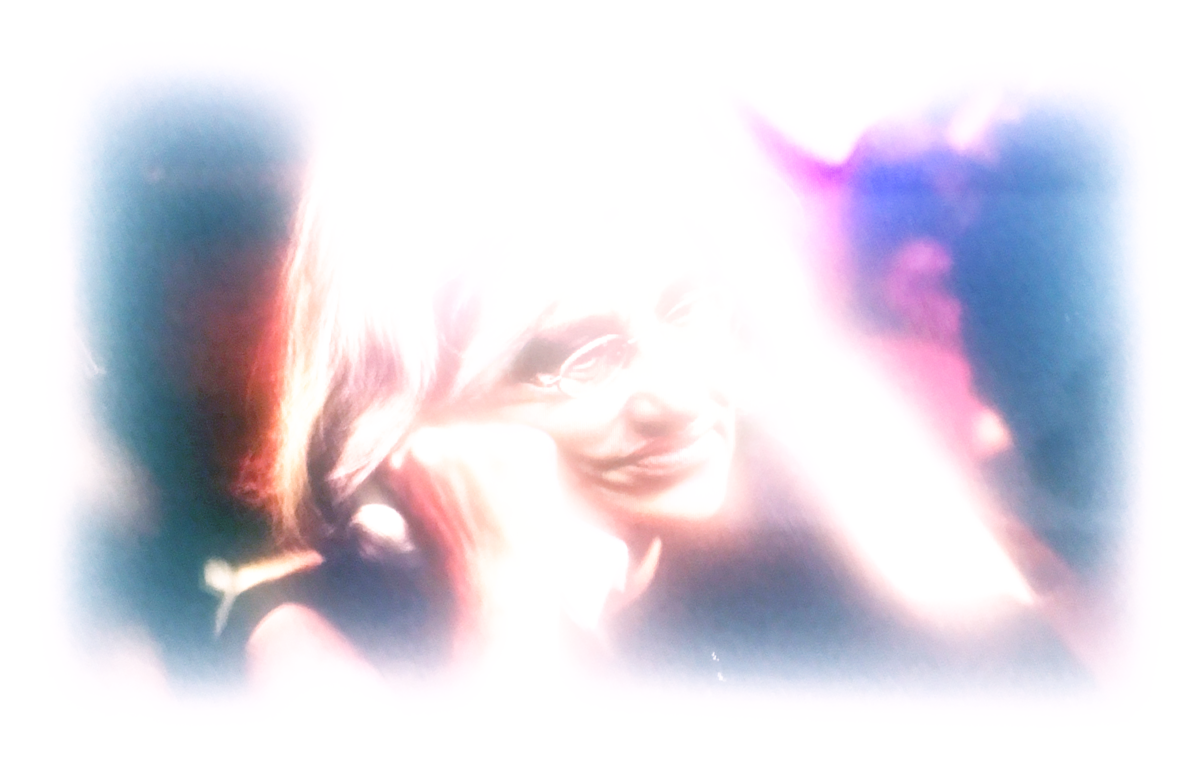
For decades, Laila Soueif has been a familiar sight at protests across Cairo. From demonstrations calling for academic freedom at Cairo University to the earliest manifestations of the Kifaya movement to the uprising of 2011 and beyond, Soueif is a curiously iconic figure. With her graying and occasionally disheveled hair and lightly rumpled clothes, the celebrated professor of mathematics is difficult to miss in a crowd. She tends to be the oldest in the pack — but also the most persistent.
At sixty, Soueif is the matriarch of a family of storied activists. There’s Alaa, her eldest son, a software developer and pioneering figure in the Egyptian blogosphere, who is two years into a five-year prison sentence for violating the protest law. Mona, the middle child, is a cancer researcher who’s spent much of the past six years fighting against the use of military courts to try civilians. And there’s Sanaa, the youngest, currently at university, who, in November of 2016, was released after serving six months in Qanater Prison for organizing a protest against her brother’s sentence. The year before, she had spent nine months behind bars for violating the protest law. (Imprisonment is a recurring motif in the family’s story.) The entire clan — including Soueif’s sister Ahdaf, a renowned writer based in Cairo and London — has played an outsize role in Bidoun’s encounters with Egypt over the years (in Issue 25, among others).
2014 was an especially trying year. In August, Laila’s husband of thirty-six years, Seif al-Islam Abdel Fattah, lay unconscious in a university hospital bed. A human rights lawyer who had spent nearly six years in prison under both Sadat and Mubarak, A’mou Seif, as many called him, was in critical condition after open-heart surgery. In the days that followed, Laila and Mona maintained a constant bedside vigil. The authorities denied repeated requests to allow Alaa and Sanaa to visit their ailing father.
I’ve known Alaa and his family for years. The hospital where his father lay was across the Nile from the Garden City offices of Mada Masr, the newspaper where I work as an editor. Every day, I walked across the Manial Bridge with colleagues, a lunch box in tow for Laila and Mona. Laila would laugh at us as we handed it over, joking that it was a little like the e’asha, or care packages, she so often brought her own children in prison.
Despite her fatigue, her husband’s precarious state, and her ongoing separation from her children, Laila remained dignified and calm, even cracking the occasional joke. Meanwhile, extended family had gathered in the hospital: activists, lawyers, students, teachers, journalists, ex-prisoners and their loved ones, and motley others. There were few people in the human rights community whom Seif and Laila hadn’t had a relationship with, and soon, the corridors of the hospital became a sort of reenactment of the Tahrir Square sit-in three years previous. Our conversations hummed with bittersweet memories of the past and tales of the strange present. We hoped that A’mou Seif would soon be able to join us in these exchanges, but it was not to be. He passed away on August 24, 2014.
I spoke to Laila in March of this year, our meeting squeezed in amid her classes at Cairo University, where she continues to teach, and her ongoing activist commitments, most of which relate to the March 9 Movement, which fights for the independence of Egyptian universities. We met at her home in Dokki, a warm wood-paneled space full of books and bric-a-brac. On the couch, I spotted a dog-eared copy of Boris Pasternak’s Safe Conduct.
Lina Attalah: I wanted to start by asking about your job. So many of us know you as a lifelong activist and as the illustrious mother of illustrious children. But you have been a mathematician for over four decades now. How did that happen?
Laila Soueif: My interest in mathematics started when I was very young. I was always happiest when I was solving equations. It never felt like work to me! I remember my mother having to ask me to put it aside to do my other homework. When my father saw how much I enjoyed it, he encouraged me to study pure math.
LA: Your father was a psychoanalyst, right?
LS: He was an experimental psychologist — one of those who hated psychoanalysis. He was more of a scientist, whereas everyone else in the family was involved in literature for a living. My mother, Fatma Moussa, was a professor of English literature at Cairo University. And my sister Ahdaf, as you know, ended up becoming a famous writer. So it was good for me to have something that had nothing to do with any of them. Something of my own…
LA: A rogue mathematician in the family. Were you close to your sister growing up?
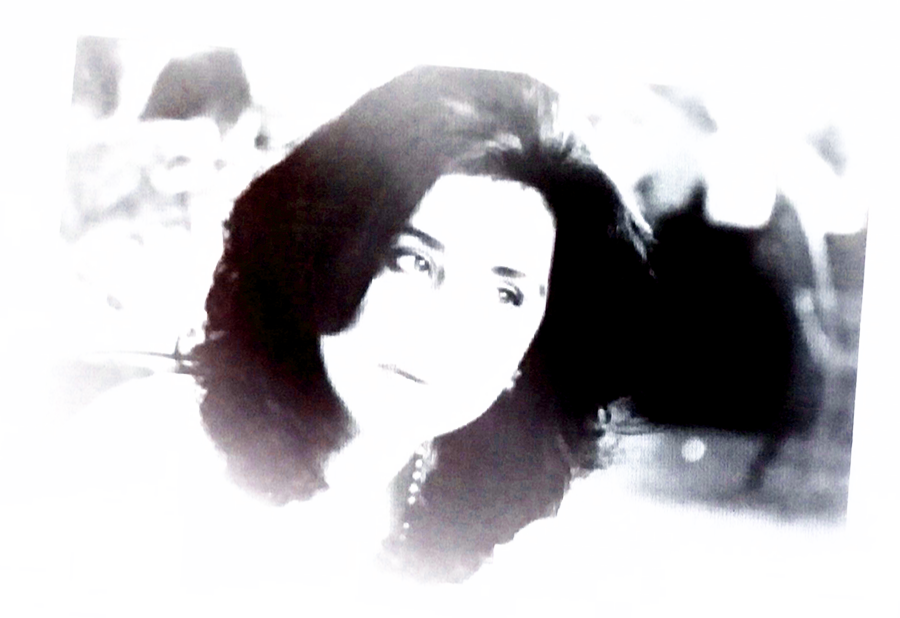
LS: My relationship with Ahdaf has been strong forever. Well, not forever. When I was much younger, I was jealous of her. She was the older, better-looking one. But by the end of high school, I got over it. We remain very close. Even after she went abroad, she would come back home regularly, and we would visit her in London.
LA: Do you like her writing?
LS: So much! I remember reading a draft of In the Eye of the Sun and not being able to put it down. But I would say that The Map of Love is my favorite of her books. It’s tighter. Better. You know, I’m the daughter of Fatma Moussa and I was raised on Jane Austen, so I am partial to texts in which every word is considered and nothing is superfluous.
LA: Have you always been a reader?
LS: I suppose. I read the giants of Arabic and English literature when I was in primary school. Again, as my mother’s daughter, it was inevitable. When I was eleven, I had typhoid and had to stay in bed for days. My mom gave me War and Peace to keep me busy.
LA: So it was just the two of you siblings growing up? Ahdaf and you?
LS: And Alaa! The original Alaa, after whom my Alaa was named.
LA: Oh! How could I forget him?
LS: We have a very strong bond, the three of us, though we’re very different. Less different than ever before, perhaps. The revolution made activists out of all of us. Before the revolution, I was the only systematic activist. Ahdaf was active on certain issues, like the Palestinian cause. But we’ve always been very close. Once, Seif was sitting with the three of us siblings and he said, “You know that you’ve been speaking for half an hour and not one of you has completed a single sentence—and yet you understand each other completely?” That’s how we are.
LA: How did you become an activist?
LS: I was definitely influenced by my parents, who had been politically active when they were younger and were always concerned with the question of injustice. It was very shocking for me to hear people speak badly about Christians or say classist things. And I was upset by stories about racial discrimination in America. As you know, the salient discourse under Nasser was egalitarian, defending the rights of the people, expressing sympathy for the revolution in Algeria and the black movements in the US and South Africa and so on. Because of the censorship at the time, you’d never hear bad news about Egypt — you’d only hear good things, regardless of the catastrophes happening behind the scenes. People would never talk politics in front of their children.
LA: But that changed…
LS: Yes, after 1967. The defeat came as a shock on so many levels. It was the end of the dream. People who’d always remained silent spoke out. I remember seeing family friends who had been close to the regime, officers in the army, sitting in our living room, crying: We betrayed the country! We lost it.
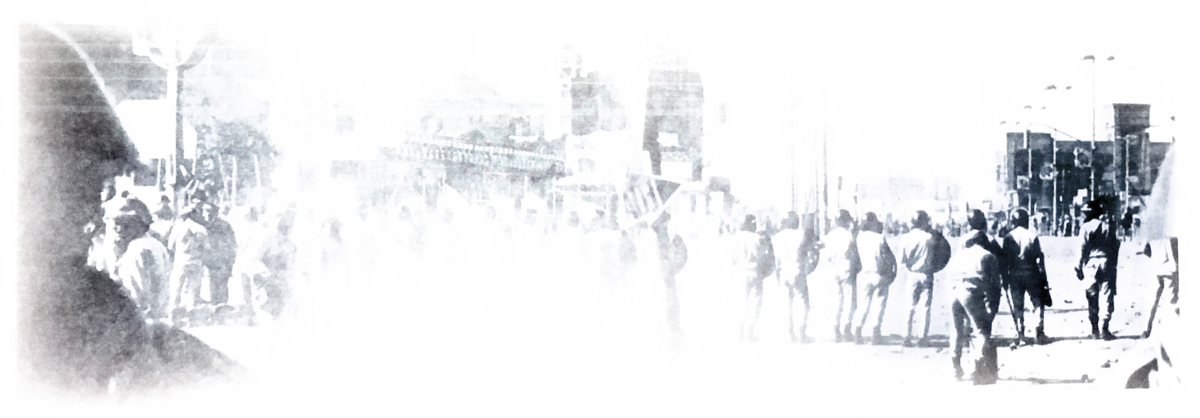
LA: How old were you at the time?
LS: Eleven. It was a formative year. Remember that this was also the height of the Vietnam War. And then in 1968 the Russians invaded Czechoslovakia. All of the masks were falling.
LA: You didn’t become politically active until you got to university, though, right?
LS: A bit before. I used to walk through Cairo University and I would see the sit-ins and the banners in the street. So when the protests passed by my high school, I joined.
LA: Those were the demonstrations that got Seif arrested? The hassm (“resolution”) protests?
LS: That’s right. He was one of hundreds of students who were imprisoned in January 1972. I started studying at Cairo University in the fall of 1973, which was also when he was released.
LA: So you met him through politics?
LS: Yes. Seif was involved with a group called Al-Matraqa. They had split off from the Egyptian Communist Party, disillusioned by the party’s reformism, including its renunciation of armed struggle. There were a number of such groups at the university at the time, working in secret and fighting endlessly with each other. I ended up finding his group the most convincing. I was lucky — or rather, I had good taste. I had inherited a certain skepticism toward leftist organizations from my parents. So I appreciated that they never tried to formally recruit me. Seif didn’t put a huge effort into recruiting people all the time. He liked to work slowly. So although I worked with them, I never really entered the group.
LA: Did your activism end up having a negative effect on your studies?
LS: Not at the time. I was taking classes in logic, set theory, meta-mathematics, and algebra, and I had great professors. In fact, my passion for mathematics probably kept me out of jail. I was too busy to attract attention. And I was never a fixture in the typical leftist haunts, like the Faculty of Economics and Political Science…
LA: And then at some point you went to do a PhD in France?
LS: Yes, later. I did an MA in algebra first, also at Cairo University. I had considered working on mathematical logic, but I liked the practical side of mathematics, too. Algebra was in between. There is the abstraction, the understanding of where things come from, and there is also the technical side, of creating mechanisms to solve equations. One day I presented a paper at a conference and one of the attendees was the person who had set up the algebra concentration at the University of Poitiers. At that time, there was a relationship between Poitiers and several of the Egyptian universities, and this man suggested to one of my professors that I do my PhD with him there. But he was a member of the Socialist Party and eventually got too busy with politics, so he passed me on to one of his students.
LA: This was after Alaa was born?
LS: Yes. My supervisor turned out to be great. She was reserved, but she liked me a lot. And she took no excuses. She’d done her PhD as a single mother with two children, and she worried that I wouldn’t focus, especially with my young son. I took a year off in the middle of my studies, when Seif was arrested, and I gave birth to Mona while I was in Cairo. So when I came back to Poitiers, I had two children. But my supervisor knew how to apply pressure, and she made me stay till I finished my thesis. Where it had taken me five years to do my MA, I got my PhD in two.
LA: After you came back to Egypt for good, you ended up joining the faculty at Cairo University, and you remained very politically active. But it seems like your politics had evolved? The March 9 movement, which you cofounded in 2004, seems very far removed from an organization like Al-Matraqa…
LS: It’s true. I came to realize that organizing in secret is useless; it’s the wrong tactic. And the idea of armed resistance — which was influenced by the struggles of the Latin Americans and the Palestinians in the 1970s and early 1980s — I’m not opposed to armed resistance in principle, but our experience of it in Egypt, in both Islamist and non-Islamist contexts, was destructive. It doesn’t lead to a popular movement.
LA: I know that March 9 has numerous aims, but it seems like it is committed, above all, to the idea of getting the politics of the state out of university life.
LA: What we need to be doing is creating de facto organizations, without seeking permission from the state. March 9 is one example; our struggle is to make the university a real university — a space for learning, research, respect, and freedom. Even before March 9, we were organizing to press for faculty independence and monitoring student detentions. In the faculty club, which had always been controlled by the state, we fought until there were free elections. It was like a dress rehearsal for the revolution — one of the demands that the revolution achieved in 2011 was making the leadership of universities an elected position. Though it was also a dress rehearsal for the counterrevolution. In both cases, we ended up with a leadership not so different from the old, appointed one, determined to break any sign of autonomy.
LA: I suppose the university will always be seen as a threat, in that it’s home to the most able bodies — the students.
LS: Of course. The university is an eternal source of nuisance.
LA: March 9 seemed like a way of combining your dual interests or preoccupations with academic inquiry and political engagement. You have worked to bring the struggle to the site of your professional practice. During the revolution, there were those who argued that one’s personal professional practice could itself be revolutionary.
LS: I think it can be. It definitely has been in the past. In the 1950s, the academic professions were some of the only open spaces. This was one of the perks of Nasser’s era — doing academic work was one of the only things you could do that could be radical and real. But that space is closed now, and not only because of politics. It’s also a function of the deterioration of Egypt’s public institutions. March 9 and others are working to reopen that space.
LA: Speaking of public spaces, were you in the square on January 25, 2011?
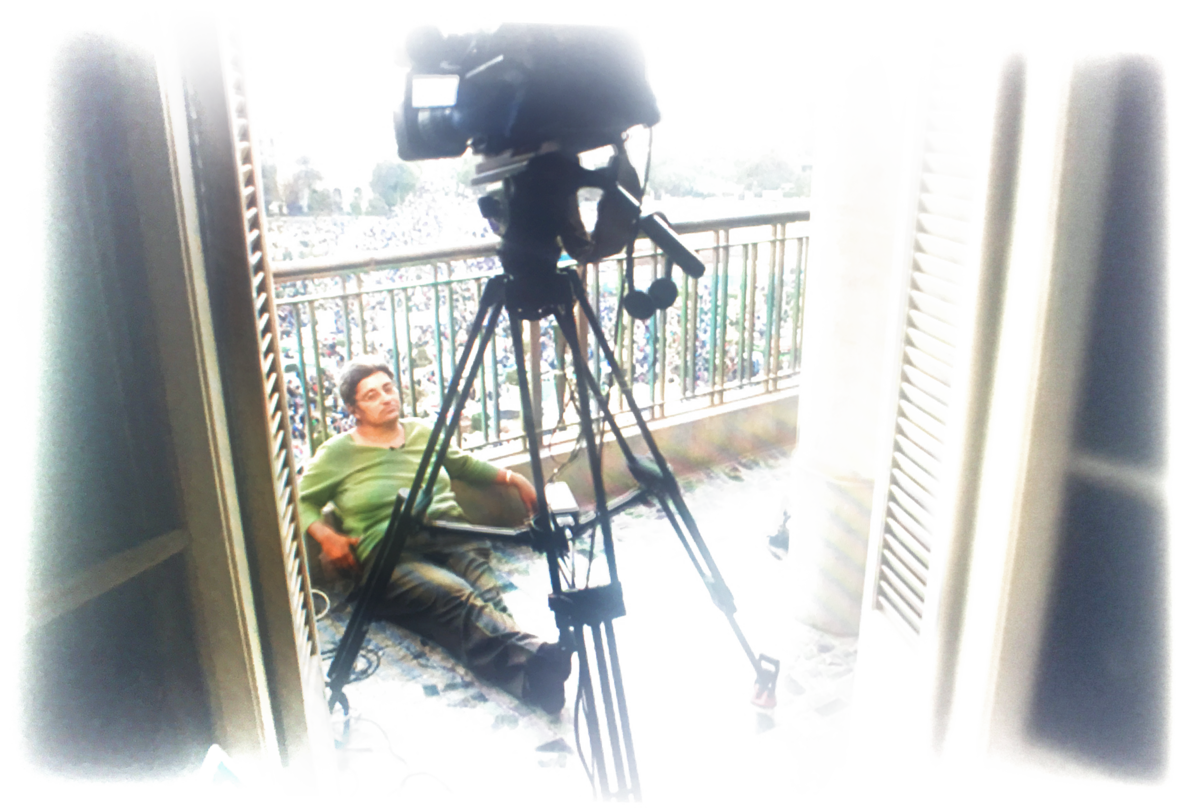
LS: I participated in the demonstration on January 25, and tried to participate on January 26 and 27, too, but without much success. The actions were too fast for me; I was turning into a liability, hindering those around me. On January 28, I was in Imbaba supporting those involved in the battle at the Imbaba police station. I made my way downtown to Tahrir later in the day, and barely left until Mubarak stepped down. I would leave for a couple of hours each morning to check on my father and update him as to what was happening, and at one point I went to the university to help organize a teachers’ march to Tahrir. But I spent almost all my time at the sit-in, until February 11.
LA: Did you see it coming at all?
LS: Definitely not! I remember joking with a friend on January 24 that if we wrapped things up early enough the next morning, I’d still be able to attend a conference at the American University in Cairo that afternoon. I did expect a big demonstration on January 25th, but nothing like what happened.
LA: Would you compare 2011 to any other political moment from the past — as an event, but also in terms of its enduring political consequences?
LS: The only comparable event would be the massive demonstrations in January 1977. But as massive and widespread as they were, they didn’t have the same deep political impact. 1977 was a spontaneous uprising with very immediate practical demands.
LA: These were the “bread riots,” after the government announced cuts to state subsidies for basic foods.
LS: Yes. And as soon as those demands were met, it was over. There was no sustained action to bring about radical political change.
LA: So where are we now, then, when it comes to “radical political change?”
LS: Well, some things have changed. What happened in 2011 has changed the country. Where we will go is a different story. Sometimes, I think my life has had three stages. There’s everything before 2000, everything between 2000 and 2011, and then the period after 2011. Before 2000, you were always part of a small group. It might have had a certain significance, but you were always aware that you were in the minority — not only in relation to the authorities, but in relation to the people, too. Those were the years of the Islamists’ ascent. Then from 2000 to 2011, we began to see a movement in the streets that was not Islamist. Of course, the Islamist movement was bigger and stronger, but there was a non-Islamist movement as well.
LA: The era of Kifaya, March 9, and the April 6 Youth Movement.
LS: Yes. And then 2011 expanded that into a real popular movement, which succeeded in bringing down Mubarak and then suffered major defeats. But it was a real popular movement. There’s a big difference between being part of a defeated movement and being part of a defeated popular movement.
LA: What does that difference mean for you? For us?
LS: While our movement is defeated, it has an audience of sympathizers in the hundreds of thousands, if not in millions. It is scattered and confused; it doesn’t know where it wants to go, it’s leaderless, it has every problem in the universe… but it exists. We’ve never lived anything like this before. As someone who lived what feels like an entire lifetime in which there was no movement at all, I wouldn’t call this a desperate place. I wouldn’t call this situation we’re in, where we’re discussing real issues of human rights, a desperate situation. It’s a very developed situation. We’re fighting for the equality of women, against torture, against homophobia. It is a problem that these are tools that were developed in the last stage, when we were a minority dealing with a more careful regime, as opposed to the current one that beats everyone with abandon. But the situation has changed, and it changed because we became dangerous. That’s the significance of being a popular movement, even in defeat. The regime is lashing out because the regime itself is desperate. So the fact that we haven’t been able to develop new tools for the new situation doesn’t mean we haven’t progressed.
LA: What would you point to as evidence of progress?
LS: I find it odd when I hear people say that conditions for women were better in the past. Maybe things looked nicer on the surface, but the situation of women on the ground today is deeply different from the 1960s and 1970s. Try to make women stay at home today. No way!
Or people are always saying that the youth are apolitical — they’re disrespectful, they won’t listen to grown-ups, they just do what they want. When you get on a toktok in Boulaq al-Dakrour [a low-income area], you will hear rebellious, political songs. And then there are the informal settlements, the so-called ashwa’iyat where so much of the population lives. People have been forced to deal with their own matters, by themselves. They’re effectively outside the authority of the state. It’s not ideal, but this is the better-case scenario.
LA: So people’s relationship to authority is changing?
LS: I would say that the authorities are losing their grip on power. We’ve witnessed the collapse of the legend of the glorious national army; that can’t be reversed. We have more possibilities today than ever. But also more opportunities for a complete breakdown.
LA: You say that the problem is that we need new conceptualizations, new tools. But tools to do what, exactly? What does it mean to be politically engaged? What’s the purpose? Is it to create autonomous institutions, outside the system? To take power? To build power? To cause discomfort to those in power?
LS: It depends on when we are talking about, but I think the least we can do is give the bad guys a hard time. If you have any kind of public profile, this is the very least you can do. I get so angry at people who have audiences who choose to remain silent. They tell you it’s pointless, but that’s just not true. If your words can have an echo for people, how can you be silent? I like to think that we are sitting like Banquo’s ghost for them. Even when we fail… like in the case of Tiran and Sanafir, the islands the government gave to Saudi Arabia last year — we mobilized, organized protests, filed lawsuits. And okay, so we may not have been able to screw the marriage, but we definitely screwed the wedding. It was not a political win for the authorities.
But real politics is not about this. It’s about giving people more control over their own lives, making people’s lives better. It’s about development — making it so that people aren’t dying from curable diseases. Of course, at that level, what can be done in power is much more significant than what can be done from the outside.
I used to think that our worst nightmare would be for our revolution to end up like the Iranian revolution, but I think it turned out even worse for us. In Iran, the Islamists were part of the fight that ended the old regime, and then they turned against their allies on the Left and took power. And of course, there is oppression, and it is a terrible regime that we have to keep fighting. But there was development, too. Iran today has less poverty, more and better universities, greater industrialization. In Egypt’s case, I honestly thought there was going to be a period of reform when the Brotherhood came to power. But they didn’t have any sort of plan for development. It just wasn’t a priority. So we experienced the worst.
LA: Did you ever find it difficult to square the demands of motherhood with your political engagement, or with your career? Especially in that you were effectively a single parent, with Seif in prison for so long.
LS: I don’t think children eat up your career. Your free time, but not your career. But I didn’t mind. When Alaa was born, he became my primary source of entertainment and relaxation. I would only go to social events if I could take him along. Otherwise, I just didn’t go. You lose some freedom, of course, but it’s worth it. If Alaa hadn’t been with me in France, I would have gone mad.
For me, children are a source of emotional satisfaction in the face of distress. I knew of that at the time — once it was clear that Seif would be going to prison again, during that year that I was away from my PhD, I made sure to get pregnant. I knew I wanted to have another child to keep me busy, emotionally.
LA: Alaa always talked about his unique relationship with you, something far deeper than the traditional mother-and-son relationship.
LS: The fact that Seif was in prison when Alaa was very young created a very special relationship between us. Alaa came with me to France when I did my PhD. I had to explain things that you should never have to explain to a child — why his father was in prison, that there are bad police and good police — the good ones, who catch thieves and organize traffic, and the bad ones, who arrest people who oppose the government. You don’t usually need to know these things when you’re four or five.
But Alaa was always sensitive to things. When we were in France, there was a wave of discrimination associated with Jean-Marie Le Pen and the National Front. There were anti-immigrant ads with nooses, and it touched Alaa. He knew that the ad was addressing him somehow. Later, anytime someone said something negative about Christians, I told him that people who say bad things about Christians are like the ones who posted those ads. He became aware.
I think our relationship is also a function of Alaa’s character, though. I’ll never forget — one day, when Mona was a baby in France, I overslept. I’d had a cold. When I woke up I was frantic. It turned out that Alaa had taken Mona from her bed and made her breakfast. He just did this automatically. When Sanaa came along, it was the same. He took care of her, too. Of course Sanaa was extremely headstrong from the beginning. She still is. But when we fought with her, Alaa would take her aside and deal with her.
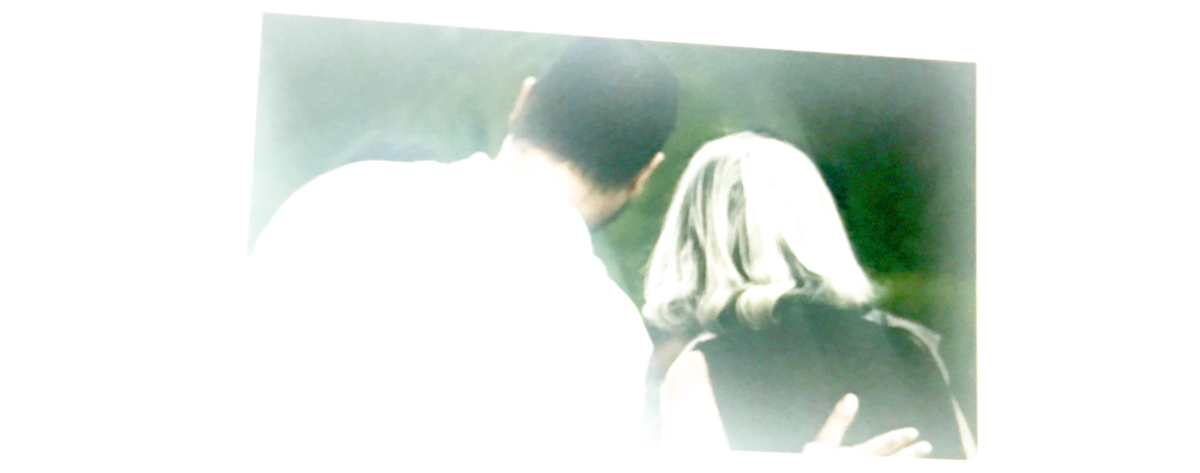
LA: All three of your children became political activists. Do you think that was inevitable?
LS: Each one of them was a surprise in their own way, although by the time we got to Sanaa, I think I understood that this is what happens. People walk their own paths and life makes them politically engaged. For me, the surprise with Sanaa was not that she joined the revolution but what came out of her at that time. She was only eighteen — so young, to handle so much horror. But she was so persistent! During the Mohamed Mahmoud clashes in 2011, ambulance men would call on her to help with serious cases at the hospital — she would make sure that victims got proper treatment. I’ve been impressed by her ability to manage complicated situations — the way she interacts with the different kinds of people you find in prison — criminals, officers, low-ranking policemen. Every single time she was arrested, someone would let us know immediately. She always manages to convince people to help her. But at the same time, she has remained unchanged in so many ways, even after prison. She was the same Sanaa who was unenthusiastic about school. The prison guards had to fight to wake her up for her exams.
LA: It’s an understatement to say that you’ve spent more than your fair share of time interacting with the prison system. How are things with Alaa, at the moment? How often do you get to see him?
LS: There are at least three visits per month, plus exceptional visits on feast days or Mother’s Day and so on. Each visit is one hour long. When both Sanaa and Alaa were in prison, it became a real complex problem. Like a mathematical equation… the kind of problem that would crash your computer. [Laughs]
LA: Can he receive letters?
LS: There are many restrictions on letters. They monitor all the letters, which is odd, because we’ll tell him everything during the visits anyway, which aren’t monitored. And it takes a very long time for them to make it to him. They’re obsolete by the time they arrive! The whole thing is a pointless process that just aims to ruin one’s mood.
LA: What are your visits like?
LS: It varies according to Alaa’s mood. The best kind of visit is when we have some news to talk about which then leads to the kind of extraordinary but real discussions we always used to have — as though we were sitting in the living room at home.
LA: Anyone who is close to Alaa feels his absence. It’s a pervasive sentiment. How are you dealing with it?
LS: I get busy. I keep busy so I don’t get a chance to feel. I had to deal with Alaa’s absence and Seif’s death almost at the same time. With the two of them, philosophical discussions about life, change, and the revolution. So there is a level of loneliness. But again, you get busy. You play Solitaire. You read Agatha Christie or Harry Potter for the fifth time.
LA: Does he have access to books?
LS: We’re still in the same stupid situation. Only a few books are allowed, even after the ban on books altogether was lifted following our campaign. There’s really no logic when it comes to what’s allowed and what isn’t. Every once in a while they allow something in.
LA: What sort of books make them nervous?
LS: I’ll give you a telling example. My father’s diaries were published by the Supreme Council for Culture and they wouldn’t allow them to enter. These are his grandfather’s diaries, published by the state! So perhaps there’s no sense in the world. They did, however, allow us to bring in some of his favorite comics — Tintin, Asterix, and Sandman, of course.
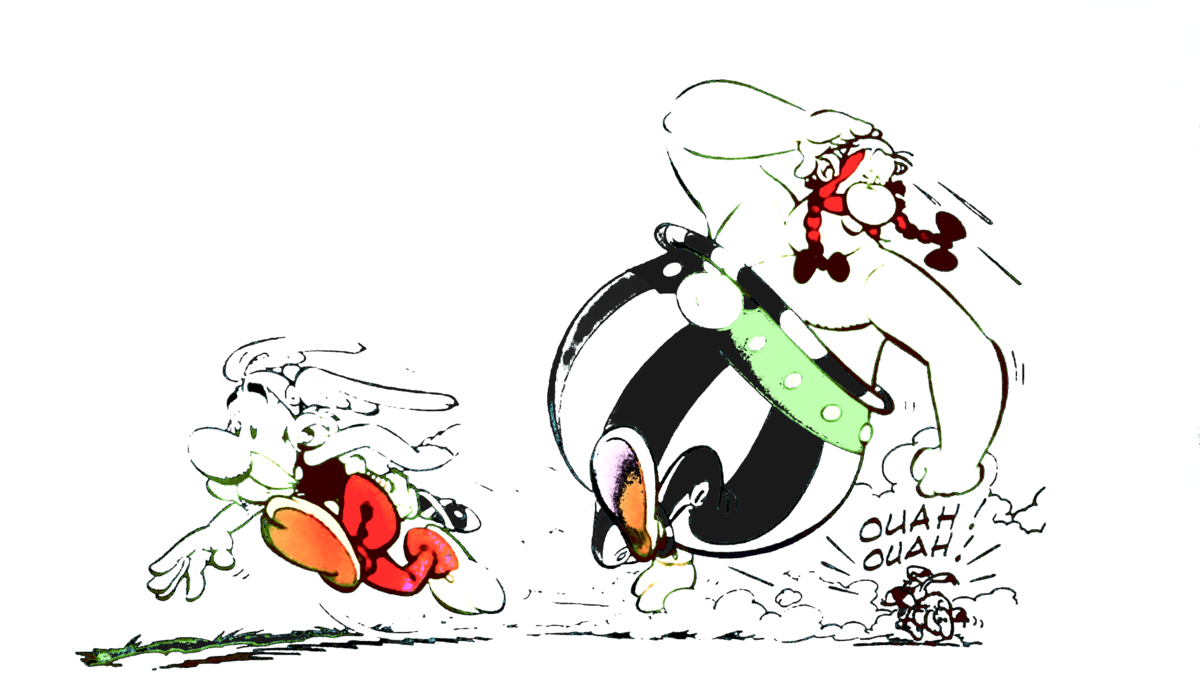
LA: Is he able to get much writing done?
LS: Some. There is the interview he gave to the Spanish newspaper El Mundo. The last things he wrote were the three articles he did for you at Mada Masr, about Uber. I hope there will be something new soon. We make sure to publish anything he writes right away because there are a lot of restrictions on his ability to write and they’re liable to change. I love reading him — hearing his voice in this way, his analysis, his ability to capture what’s going on in politics, technology, the world. Everything. It makes me happy but it breaks my heart, because this is what I miss.
LA: Alaa used to speak a lot about politics as an emotional space, and the difference between traditional political organizing and organizing through a Facebook page, which may, he’d say, capture emotions and allow us to exchange in new ways that traditional organizing couldn’t. But I feel like things have gotten lost along the way. I’ve often thought that your generation was more selfless than ours. My generation seems to be so invested in understanding our emotions. It feels self-indulgent at times to me. Do you see this generational dynamic?
LS: I don’t know. I’ve seen the youth of the revolution working with the poor and the oppressed. This is selflessness, isn’t it? I’ve never really thought about your question, but now that you raise it — I think my generation as a whole simply wasn’t engaged. In the 1970s there was a minority of politically engaged youth and then a majority who became careless. I sympathize a lot when people lay the blame for the defeat today on my generation. Back then, schools and hospitals hadn’t deteriorated yet, but our generation still opted out. They put their children in private schools instead of fighting for good public schools. They sought treatment in private hospitals instead of fighting for public health. The generations that followed haven’t had much of a choice. So in a way, people who chose to be politically engaged today have to be selfless.
LA: Alaa also used to say that he saw so much energy for political engagement among the youth around the time of revolution, but the problem was the lack of vehicles or venues to host this energy. Is this deficit creating a sense of loss or disorientation?
LS: I’m not sure. You have the entire spectrum. There are some manifestations of continued political engagement. In the last Egyptian Student Union elections, the students fighting for campus freedom swept the vote. The Ministry of Higher Education responded by canceling the election results. It’s important to remember how when the university was targeted in 2013, when the big crackdown happened and the professors mostly lined up with one or the other political organization — pro-Islamist or pro-military — the students didn’t fall for it. For the most part, they refused to work against each other, even if they didn’t all agree. And many of them did not — the student movement was controlled by Islamists at the time! But these were the values of January 25…
Still, I think people are fragile. There are activists today who say that al-shaab (the people) don’t deserve their activism. Some young people join the Islamic State, others join the April 6 Youth Movement. Some would pursue drug dealing if offered the chance. I’m sure there’s a portion of the youth who have developed affinities for violence. And there’s a high percentage who see the situation as completely hopeless and who want to leave the country. But so long as they’re here, they will struggle. They will resist. But it’s a resistance with no horizon in sight.
It’s very difficult to assess the situation. All these dimensions are new.
Then again, I’m sixty years old, and I admit that I’m often confused. With age, you become distant, whether you like or not.
LA: Does it bother you at all, being a public figure?
LS: There are things that drive me crazy, of course — like being photographed in public. The upside is that I have had the privilege of detecting the onset of a certain mood on the street against Abdel Fattah al-Sisi. I have access. My face is known. So people stop me in the street and call, Um Alaa, say hi to him! People know us and love us, and we can do something with this.
I can also confirm the theory that once you’re sixty, state security wants nothing to do with you. They don’t want to beat me or arrest me or even see my face! They try their best to ignore me. I’ve become invisible.